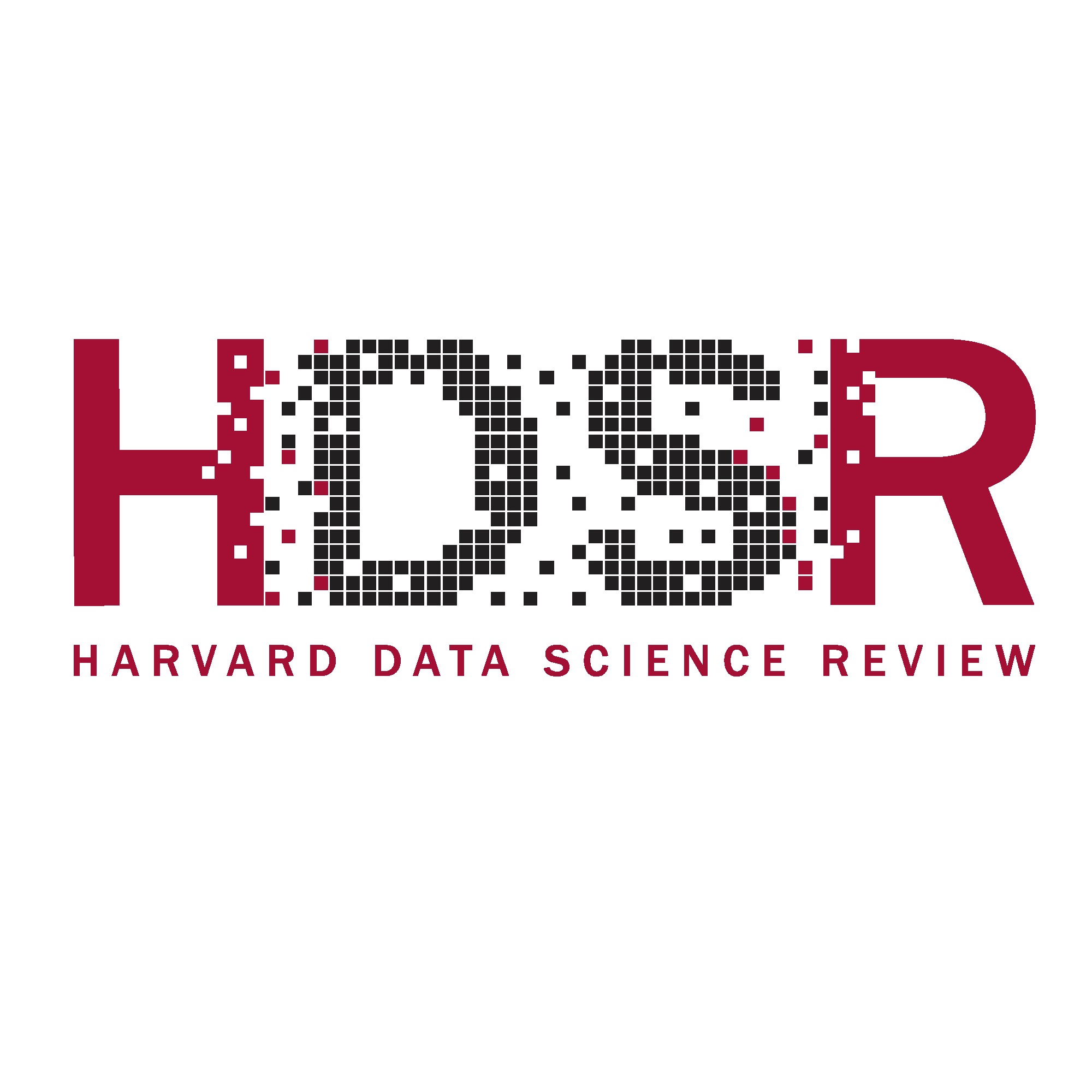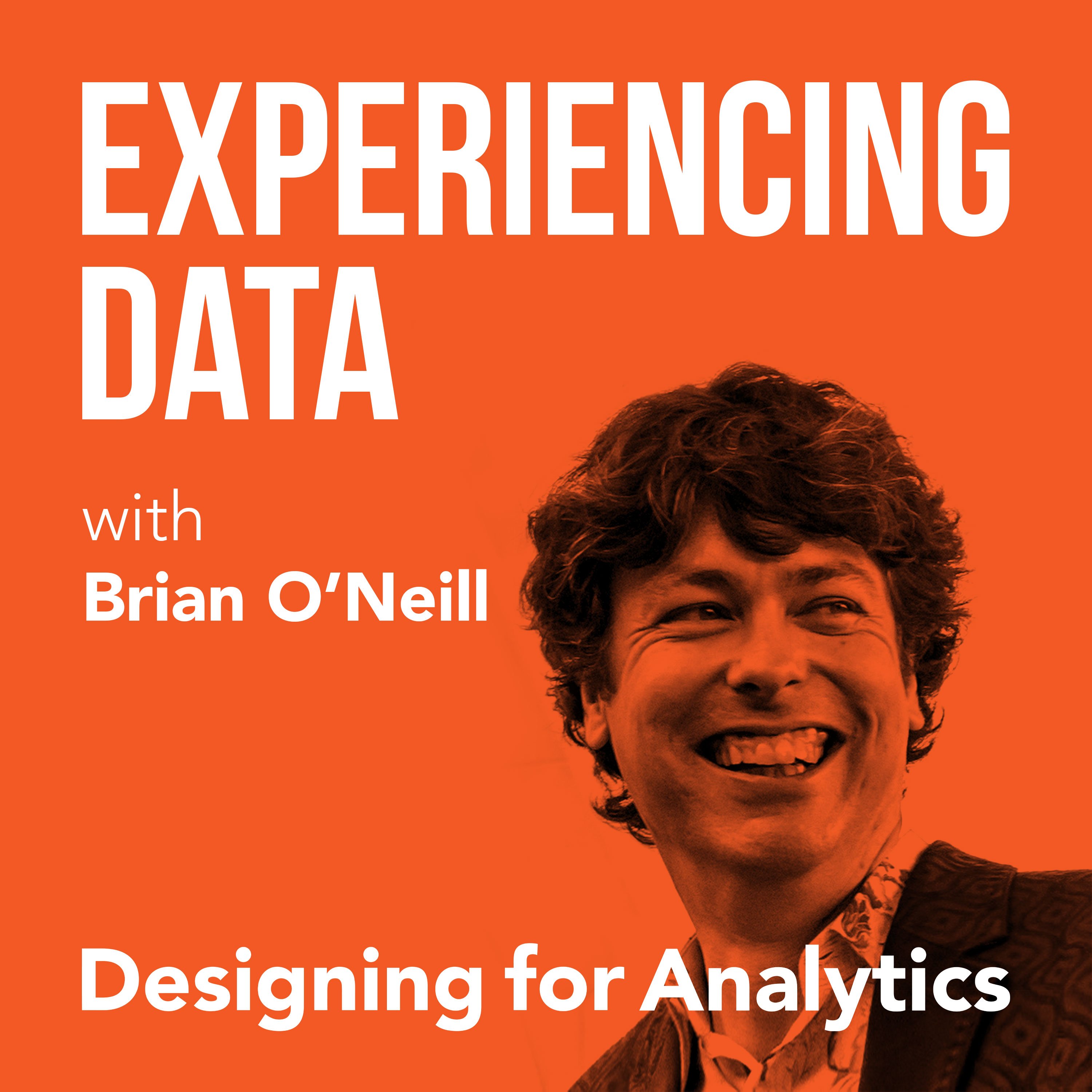Shows
 Resoundingly HumanBehind the scenes with the #INFORMS2024 Plenaries: AI Fireside Chat We’re continuing our countdown to the 2024 INFORMS Annual Meeting, in Seattle, Washington, October 20-23, when more than 6,000 INFORMS members, students, prospective employers and employees, and academic and industry experts will share the ways O.R. and analytics are fueling Smarter Decisions for a Better World. In this episode, I’m joined by Cynthia Rudin, with Duke University, Charles Isbell, with the University of Wisconsin, and Michel Littman, with the National Science Foundation, for a preview of their plenary session, “Making the Most of this AI Moment: A Fireside Chat.” Charles serves as the provost and vice...2024-10-2139 min
Resoundingly HumanBehind the scenes with the #INFORMS2024 Plenaries: AI Fireside Chat We’re continuing our countdown to the 2024 INFORMS Annual Meeting, in Seattle, Washington, October 20-23, when more than 6,000 INFORMS members, students, prospective employers and employees, and academic and industry experts will share the ways O.R. and analytics are fueling Smarter Decisions for a Better World. In this episode, I’m joined by Cynthia Rudin, with Duke University, Charles Isbell, with the University of Wisconsin, and Michel Littman, with the National Science Foundation, for a preview of their plenary session, “Making the Most of this AI Moment: A Fireside Chat.” Charles serves as the provost and vice...2024-10-2139 min The North American Friends Movie ClubThe Silence Of The Lambs (1991)Brent, Nate, and Kate pair beans and wine with the 1991 American Psychological Horror film The Silence of the Lambs (1991) starring:Jodie Foster as Clarice StarlingAnthony Hopkins as Dr. Hannibal LecterScott Glenn as Jack CrawfordTed Levine as Jame "Buffalo Bill" GumbAnthony Heald as Dr. Frederick ChiltonBrooke Smith as Catherine MartinDiane Baker as U.S. Senator Ruth MartinKasi Lemmons as Ardelia MappFrankie Faison as Barney MatthewsTracey Walter as LamarCharles...2023-07-131h 06
The North American Friends Movie ClubThe Silence Of The Lambs (1991)Brent, Nate, and Kate pair beans and wine with the 1991 American Psychological Horror film The Silence of the Lambs (1991) starring:Jodie Foster as Clarice StarlingAnthony Hopkins as Dr. Hannibal LecterScott Glenn as Jack CrawfordTed Levine as Jame "Buffalo Bill" GumbAnthony Heald as Dr. Frederick ChiltonBrooke Smith as Catherine MartinDiane Baker as U.S. Senator Ruth MartinKasi Lemmons as Ardelia MappFrankie Faison as Barney MatthewsTracey Walter as LamarCharles...2023-07-131h 06 Computing UpThe Understandable Cynthia RudinCynthia Rudin, the Earl D. McLean, Jr. Professor of Computer Science, Electrical and Computer Engineering, Statistical Science, Mathematics,and Biostatistics & Bioinformatics at Duke University (🔗, 🔗, 🔗), joins Michael and Dave for a fast and feisty conversation about how to make machines we can understand and control, with high-stakes examples like predicting power failures in New York City.2023-02-1851 min
Computing UpThe Understandable Cynthia RudinCynthia Rudin, the Earl D. McLean, Jr. Professor of Computer Science, Electrical and Computer Engineering, Statistical Science, Mathematics,and Biostatistics & Bioinformatics at Duke University (🔗, 🔗, 🔗), joins Michael and Dave for a fast and feisty conversation about how to make machines we can understand and control, with high-stakes examples like predicting power failures in New York City.2023-02-1851 min Harvard Data Science Review PodcastData Science for Criminal Justice: Can We Avoid Black Box Algorithms for High-Stake Decisions?In this episode we examine the use of secret or black box algorithms for high-stake decisions, particularly in the criminal justice system. How do they factor in the decisions made every day by state and federal courts concerning bail, sentencing, and parole? Are black box algorithms fair and unbiased? Do they help counteract or support societal prejudices? Is their use in criminal justice cases serving the public’s best interest?
We discuss these issues and more with two experts on the topic: Cynthia Rudin, Professor of Computer Science, Electrical and Computer Engineering, Statistical Science, Mathematics, and Biostatistics & Bio...2022-01-2541 min
Harvard Data Science Review PodcastData Science for Criminal Justice: Can We Avoid Black Box Algorithms for High-Stake Decisions?In this episode we examine the use of secret or black box algorithms for high-stake decisions, particularly in the criminal justice system. How do they factor in the decisions made every day by state and federal courts concerning bail, sentencing, and parole? Are black box algorithms fair and unbiased? Do they help counteract or support societal prejudices? Is their use in criminal justice cases serving the public’s best interest?
We discuss these issues and more with two experts on the topic: Cynthia Rudin, Professor of Computer Science, Electrical and Computer Engineering, Statistical Science, Mathematics, and Biostatistics & Bio...2022-01-2541 min Experiencing Data w/ Brian T. O’Neill (UX for AI Data Products, SAAS Analytics, Data Product Management)082 - What the 2021 $1M Squirrel AI Award Winner Wants You To Know About Designing Interpretable Machine Learning Solutions w/ Cynthia RudinEpisode Description
As the conversation around AI continues, Professor Cynthia Rudin, Computer Scientist and Director at the Prediction Analysis Lab at Duke University, is here to discuss interpretable machine learning and her incredible work in this complex and evolving field. To begin, she is the most recent (2021) recipient of the $1M Squirrel AI Award for her work on making machine learning more interpretable to users and ultimately more beneficial to humanity.
In this episode, we explore the distinction between explainable and interpretable machine learning and how black boxes aren’t necessarily “better” than more interpretable models. Cynthia offers...2022-01-1137 min
Experiencing Data w/ Brian T. O’Neill (UX for AI Data Products, SAAS Analytics, Data Product Management)082 - What the 2021 $1M Squirrel AI Award Winner Wants You To Know About Designing Interpretable Machine Learning Solutions w/ Cynthia RudinEpisode Description
As the conversation around AI continues, Professor Cynthia Rudin, Computer Scientist and Director at the Prediction Analysis Lab at Duke University, is here to discuss interpretable machine learning and her incredible work in this complex and evolving field. To begin, she is the most recent (2021) recipient of the $1M Squirrel AI Award for her work on making machine learning more interpretable to users and ultimately more beneficial to humanity.
In this episode, we explore the distinction between explainable and interpretable machine learning and how black boxes aren’t necessarily “better” than more interpretable models. Cynthia offers...2022-01-1137 min Utilizing Tech: The Podcast Series About Emerging Technology3x16: Utilizing AI in 2022 with Chris Grundemann and Frederic Van HarenAI is now widespread, and companies are starting to look at the real-world impact of machine learning. In this special episode of the Utilizing AI podcast, the three hosts look forward to AI in 2022 and revisit some of our guest questions from season three. First, we turn to the specific markets and verticals served by AI applications. We feel that datasets and models will increasingly be focused on specific business uses instead of being general-purpose tools. Next, we consider how the AI industry is increasingly concerned about ethics, bias, and privacy of data. Industry leaders like Timnit Gebru and...2022-01-0435 min
Utilizing Tech: The Podcast Series About Emerging Technology3x16: Utilizing AI in 2022 with Chris Grundemann and Frederic Van HarenAI is now widespread, and companies are starting to look at the real-world impact of machine learning. In this special episode of the Utilizing AI podcast, the three hosts look forward to AI in 2022 and revisit some of our guest questions from season three. First, we turn to the specific markets and verticals served by AI applications. We feel that datasets and models will increasingly be focused on specific business uses instead of being general-purpose tools. Next, we consider how the AI industry is increasingly concerned about ethics, bias, and privacy of data. Industry leaders like Timnit Gebru and...2022-01-0435 min The Nonlinear Library: Alignment Forum Top PostsSearch versus design by Alex FlintWelcome to The Nonlinear Library, where we use Text-to-Speech software to convert the best writing from the Rationalist and EA communities into audio.
This is: Search versus design, published by Alex Flint on the AI Alignment Forum.
This work was supported by OAK, a monastic community in the Berkeley hills. It could not have been written without the daily love of living in this beautiful community. The work involved in writing this cannot be separated from the sitting, chanting, cooking, cleaning, crying, correcting, fundraising, listening, laughing, and teaching of the whole community.
This write-up benefited from feedback...2021-12-041h 15
The Nonlinear Library: Alignment Forum Top PostsSearch versus design by Alex FlintWelcome to The Nonlinear Library, where we use Text-to-Speech software to convert the best writing from the Rationalist and EA communities into audio.
This is: Search versus design, published by Alex Flint on the AI Alignment Forum.
This work was supported by OAK, a monastic community in the Berkeley hills. It could not have been written without the daily love of living in this beautiful community. The work involved in writing this cannot be separated from the sitting, chanting, cooking, cleaning, crying, correcting, fundraising, listening, laughing, and teaching of the whole community.
This write-up benefited from feedback...2021-12-041h 15 Resoundingly HumanResoundingly Human: The new Nobel: INFORMS member awarded top AI prizeOn this episode, I have the pleasure of speaking with an INFORMS member whose work is truly saving lives, saving money, and solving [problems. Cynthia Rudin, professor of computer science and engineering at Duke University, has been awarded the 2021 Squirrel AI Award for Artificial Intelligence for the Benefit of Humanity, an honor considered to be the New Nobel Prize. This award recognizes positive impacts of artificial intelligence to protect, enhance, and improve human life in meaningful ways with long-lived effects. In particular, her work with Con Edison, Massachusetts General Hospital and the Cambridge Police Department played a key role...2021-11-1211 min
Resoundingly HumanResoundingly Human: The new Nobel: INFORMS member awarded top AI prizeOn this episode, I have the pleasure of speaking with an INFORMS member whose work is truly saving lives, saving money, and solving [problems. Cynthia Rudin, professor of computer science and engineering at Duke University, has been awarded the 2021 Squirrel AI Award for Artificial Intelligence for the Benefit of Humanity, an honor considered to be the New Nobel Prize. This award recognizes positive impacts of artificial intelligence to protect, enhance, and improve human life in meaningful ways with long-lived effects. In particular, her work with Con Edison, Massachusetts General Hospital and the Cambridge Police Department played a key role...2021-11-1211 min CodeStack[CodeStack News] EUA “sem chances” contra China / “Prêmio Nobel” de IA / Scraping de fotos• Ex-chefe de tecnologia do Pentágono afirma que EUA “não tem chance” contra tecnologia da China
• Cynthia Rudin recebe o “rêmio Nobel” de inteligência artificial de 2021
• Clearview AI admite que já escaneou mais de 10 bilhões de fotos de redes sociais para sua ferramenta de reconhecimento facial
• França e nove outros países europeus querem rotular energia nuclear como fonte de baixo carbono
• Estudo mostra que robôs sociais melhoram a perspectiva de crianças hospitalizadas
• Constelação orbital Starlink também podem servir como GPS
Estas notícias foram extraídas da newsletter...2021-10-1203 min
CodeStack[CodeStack News] EUA “sem chances” contra China / “Prêmio Nobel” de IA / Scraping de fotos• Ex-chefe de tecnologia do Pentágono afirma que EUA “não tem chance” contra tecnologia da China
• Cynthia Rudin recebe o “rêmio Nobel” de inteligência artificial de 2021
• Clearview AI admite que já escaneou mais de 10 bilhões de fotos de redes sociais para sua ferramenta de reconhecimento facial
• França e nove outros países europeus querem rotular energia nuclear como fonte de baixo carbono
• Estudo mostra que robôs sociais melhoram a perspectiva de crianças hospitalizadas
• Constelação orbital Starlink também podem servir como GPS
Estas notícias foram extraídas da newsletter...2021-10-1203 min ScienceWhys: Questions at the Confluence of Science and EthicsI’m Trying to Predict the Future in Ways that a Human can UnderstandCynthia Rudin, Professor of Computer Science, Electrical and Computer Engineering, and Statistical Science Director, Prediction Analysis Lab Duke University2021-09-021h 17
ScienceWhys: Questions at the Confluence of Science and EthicsI’m Trying to Predict the Future in Ways that a Human can UnderstandCynthia Rudin, Professor of Computer Science, Electrical and Computer Engineering, and Statistical Science Director, Prediction Analysis Lab Duke University2021-09-021h 17 Data Science at Home2 effective ways to explain your predictions (Ep. 163)Our Sponsor
Amethix use advanced Artificial Intelligence and Machine Learning to build data platforms and predictive engines in domain like finance, healthcare, pharmaceuticals, logistics, energy. Amethix provide solutions to collect and secure data with higher transparency and disintermediation, and build the statistical models that will support your business.
References
Fisher, Aaron, Cynthia Rudin, and Francesca Dominici. “Model Class Reliance: Variable importance measures for any machine learning model class, from the ‘Rashomon’ perspective.” http://arxiv.org/abs/1801.01489 (2018).
Python SHAP
https://github.com/slundberg/shap
2021-08-0324 min
Data Science at Home2 effective ways to explain your predictions (Ep. 163)Our Sponsor
Amethix use advanced Artificial Intelligence and Machine Learning to build data platforms and predictive engines in domain like finance, healthcare, pharmaceuticals, logistics, energy. Amethix provide solutions to collect and secure data with higher transparency and disintermediation, and build the statistical models that will support your business.
References
Fisher, Aaron, Cynthia Rudin, and Francesca Dominici. “Model Class Reliance: Variable importance measures for any machine learning model class, from the ‘Rashomon’ perspective.” http://arxiv.org/abs/1801.01489 (2018).
Python SHAP
https://github.com/slundberg/shap
2021-08-0324 min Department of StatisticsDo Simpler Models Exist and How Can We Find Them?Cynthia Rudin (Duke University) gives a OxCSML Seminar on Friday 14th May 2021. Abstract: While the trend in machine learning has tended towards more complex hypothesis spaces, it is not clear that this extra complexity is always necessary or helpful for many domains. In particular, models and their predictions are often made easier to understand by adding interpretability constraints. These constraints shrink the hypothesis space; that is, they make the model simpler. Statistical learning theory suggests that generalization may be improved as a result as well. However, adding extra constraints can make optimization (exponentially) harder. For instance it is much easier...2021-07-2956 min
Department of StatisticsDo Simpler Models Exist and How Can We Find Them?Cynthia Rudin (Duke University) gives a OxCSML Seminar on Friday 14th May 2021. Abstract: While the trend in machine learning has tended towards more complex hypothesis spaces, it is not clear that this extra complexity is always necessary or helpful for many domains. In particular, models and their predictions are often made easier to understand by adding interpretability constraints. These constraints shrink the hypothesis space; that is, they make the model simpler. Statistical learning theory suggests that generalization may be improved as a result as well. However, adding extra constraints can make optimization (exponentially) harder. For instance it is much easier...2021-07-2956 min AIToday LiveS02E04 - Onderzoek naar Explainable AI met Ouren Kuiper (Lectoraat HU)In deze aflevering spreken we met Ouren Kuiper, onderzoeker AI bij Utrecht University of Applied Sciences. Ouren heeft een onderzoek uitstaan over het gebruik van Explainable AI. We bespreken de voorlopige resultaten van dit onderzoek met hem.In deze aflevering o.a.:Co-pilot GitHubTNO proeftuinAI en De NachtwachtOnderzoek naar gebruik van Explainable AIWelke tools en platformen worden er gebruikt voor Explainable AI in de markt?Wat zijn de valkuilen bij Explainable AI?LinksPaper ‘Stop Explaining Black Box Machine Learning Models for High Stakes Decisions and Use Interpretable Models Instead” - Cy...2021-07-1948 min
AIToday LiveS02E04 - Onderzoek naar Explainable AI met Ouren Kuiper (Lectoraat HU)In deze aflevering spreken we met Ouren Kuiper, onderzoeker AI bij Utrecht University of Applied Sciences. Ouren heeft een onderzoek uitstaan over het gebruik van Explainable AI. We bespreken de voorlopige resultaten van dit onderzoek met hem.In deze aflevering o.a.:Co-pilot GitHubTNO proeftuinAI en De NachtwachtOnderzoek naar gebruik van Explainable AIWelke tools en platformen worden er gebruikt voor Explainable AI in de markt?Wat zijn de valkuilen bij Explainable AI?LinksPaper ‘Stop Explaining Black Box Machine Learning Models for High Stakes Decisions and Use Interpretable Models Instead” - Cy...2021-07-1948 min